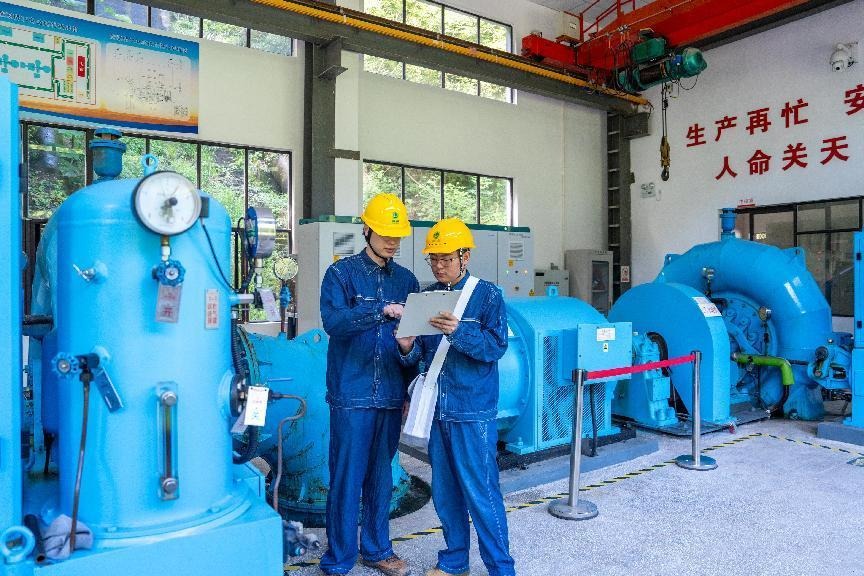E-commerce sector must up game


Shopping festivals launched by e-commerce platforms have boosted consumption. The "Double 11" (Nov 11) online shopping gala was launched in 2009, and e-commerce companies' sales during the event have been extremely impressive.
The rapid development of e-commerce platforms has played a crucial role in driving consumption and economic growth. In 2022, the countrywide e-commerce turnover was about 43.83 trillion yuan ($6.03 trillion), accounting for 36.2 percent of the country's GDP. Online retail sales that year reached 13.8 trillion yuan, up 4.0 percent year-on-year, and accounting for 31.4 percent of the total retail sales of consumer goods.
But despite e-commerce platforms' booming sales, merchants and platform companies need to improve their business practices in order to realize the high-quality development of the e-commerce industry.
First, the e-commerce industry needs to improve the quality of goods. According to the China Consumers Association, about 19.81 percent of the total 1.15 million complaints recorded in 2022 were about quality.
E-commerce platforms should therefore take measures to have accurate quality information about the products on sale while taking measures to improve product quality. To this end, e-commerce platforms should cooperate with merchants and market regulators to develop quantifiable product quality parameters, strengthen the commodity evaluation system, and take measures to eradicate "fake positive reviews" and other fraudulent behaviors, so as to help improve consumers' understanding of products.
Second, e-commerce platforms and merchants should follow fair competition laws and regulations, especially because some e-commerce platforms are suspected of violating the Anti-Unfair Competition Law and the Anti-Monopoly Law, which has led to the sale of "knock-off products" and lowering of prices to "unbelievable" levels (in many cases after first hiking the prices) to attract more customers.
Such acts are neither beneficial to consumers and merchants nor conducive to the healthy development of e-commerce platforms. As such, merchants, e-commerce platforms and regulators need to work together to ensure online competition is fair. The e-commerce platforms can prevent unfair competition and monopoly behavior by organizing training on legal matters for merchants, and establishing platforms for collecting information about unfair and disorderly competition so consumers' grievances can be effectively redressed. As for the regulators, they need to analyze cases of unfair, disorderly competition and use them to urge e-commerce platforms to comply with the law.
Third, the platforms should promote green e-commerce, especially because there is still room for reducing the carbon emissions in the distribution chains of e-commerce platforms. According to data cited in the Ministry of Commerce's China E-Commerce Report (2022), the annual express delivery business volume exceeded 100 billion pieces in 2022, with the carbon emissions from each express parcel being higher than that generated by the use of plastic bags in offline shopping.
Algorithm-driven sales lead to impulsive buying, overconsumption and waste of resources. Ministry of Commerce survey data show that 44.1 percent of consumers watching ecommerce livestreaming feel the impulse to buy something. This suggests there is a need to reduce carbon emissions in the supply chains and consequently ease the pressure on the environment, for which e-commerce platforms and logistics companies should jointly set commodity packaging specifications to reduce excessive packaging.
Fourth, for consumers, service quality is as important as product quality. Since consumers can only determine whether the goods delivered match them against their orders only after receiving them, after-sales services for returns and refunds have become an important factor affecting consumers' online shopping experience.
Consumers, in general, face various problems when seeking after-sales redress for any grievances, such as difficulty in providing evidence, going through a complicated process and slow refunding of their money. To solve these problems, e-commerce platforms can explore institutionalized ways to regulate after-sales services.
E-commerce platforms, for instance, should consider setting after-sales service rating standards for different types of merchants and issue a guideline for them to provide such services for consumers, establish a high-level after-sales management system, and preserve the evidence at the stage of "delivery or pickup" for verifying it when consumers seek a refund or exchange for the purchased goods.
And fifth, there is a need to strictly protect consumers' data. Reports of leaks of consumer data involving e-commerce platforms are frequent. The leakage of private data in some cases not only results in consumers being harassed by frequent marketing calls, but also increases the risk of telecom fraud. Therefore, e-commerce platforms and merchants are obligated to protect consumer privacy by, for example, blocking all possible sources of data leakage.
The authorities should also improve the regulatory system to prevent data leaks and improper use of data, while strengthening law enforcement. In other words, the authorities need to tighten supervision of the whole process of collecting, processing and transferring data on e-commerce platforms, and ensure no information is leaked during any of the processes.
The author is an assistant researcher at the Institute of World Economics and Politics, Chinese Academy of Social Sciences. The views don't necessarily reflect those of China Daily.
If you have a specific expertise, or would like to share your thought about our stories, then send us your writings at opinion@chinadaily.com.cn or comment@chinadaily.com.cn.


































